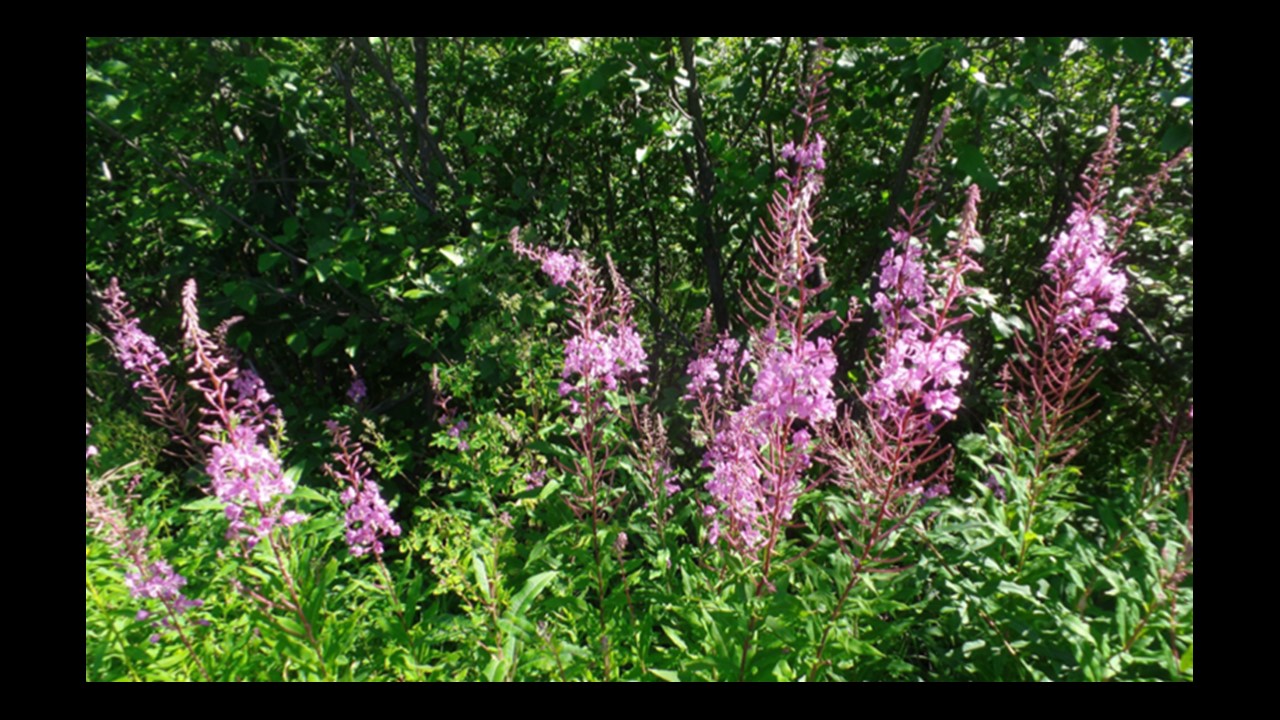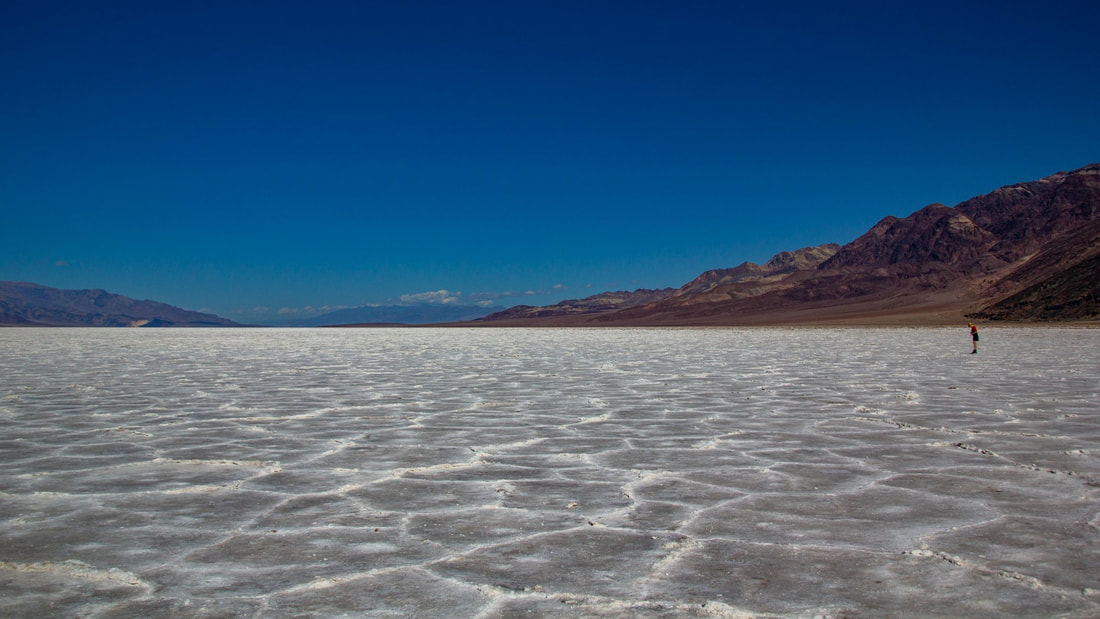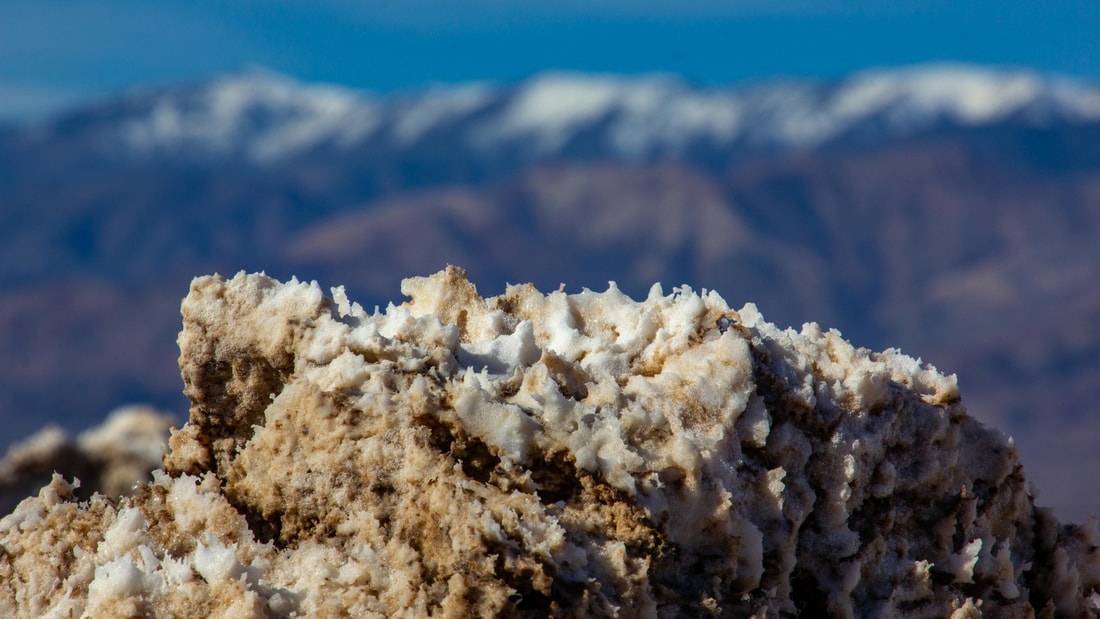Maggie Breen1 Samuel 15:34-16:13 † Psalm 20 † 2 Corinthians 5:6-10, 14-17 † Mark 4:26-34 You can view a video recording of this sermon here.
Isn’t that the case with so much of what we experience? We take something in, and we react, sometimes quietly, sometimes less so, but so often out of these hard-earned unspoken assumptions that have this silent power to affect our lives and the lives of others.
Rosebay Willowherb, for me, used to be a sign of something bad and only something bad. It grew in my family’s yard starting in the late spring and early summer each year. Those stubborn stems with their long, thin, rough, dark green leaves that seemed to me to spiral like a screwdriver or a drill making its way through the low growth. And then as summer moved on those loud pink flowers, one atop the other, clamoring for the sky. And bees, lots of bees, would hang out in that slanting swath of pink and then the flowers would turn to these long thin seed capsules that would split open seemingly overnight to reveal this tangled mess of tiny, almost invisible brown seeds hidden in a mass of silk hairs that would carry them off in clouds.
0 Comments
Scott AndersonIsaiah 25:6-9 † Psalm 118 † 1 Corinthians 15:1-11 † Mark 16:1-8
A video version of this sermon can be found here. When I was young, we’d often go to the Saturday night races at the Tri-Cities raceway. We’d have a big group from the church that would gather in the stands of the unique 3-corner half-mile, high-bank track that would come roaring to life those summer evenings. Every now and then the late-model NASCAR circuit would come to town, with their powerful cars and big sponsors. You could tell the difference between them and the local racers that raced most Saturdays because they had those wide, sticky racing tires all around the car. The local racers, on the other hand, only had one of the big tires—on the front, right wheel, the outside wheel as the cars were always turning left around the track. You could tell the difference because of the tire, and the chaos that was much more common with these local racers. Now, this was especially true when, on some nights, the raceway held a special heat, just for the mechanics. This was the only time the mechanics would replace the regular drivers behind the wheel, and that was probably for the best. The mechanic heats were, well, chaos. Pandemonium. They were all over the track, and off the track. The bumps and scrapes and spin outs that often occurred with the aggressive driving on those nights was multiplied exponentially when the mechanics got behind the wheel. You might have thought it would have been just the opposite—that these mechanics who spent all their time fixing these vehicles would be the most careful, but, let me assure you, this was not the case! Not in the least. Did I use the word pandemonium already? How about chaos? Bedlam? Well, I’ve developed a theory about this that I think plays out in other areas of life as well. Let’s see what you think. I suspect that these mechanics were just, plain and simple, terrible drivers. I mean terrible—at least compared to the racers who rightly belonged behind the wheel. But that’s not the part of the theory I wanted to run by you. This is the part: Scott AndersonPsalm 118:1-2, 19-29 † Mark 11:1-11
A video version of this sermon can be found here. We have been marching for a long time. I was a cold war baby. I remember as a young boy having it seared into my head that the Soviet Union was a ruthless, godless nation that brainwashed its people into believing crazy things that I, as a privileged child of a true and free democracy was safe from. It was a powerful message that shaped me. In fact, it took me until college to begin to realize that I just may have been played, that it was entirely possible that I too had been brainwashed—that messages of supremacy and themes of otherness and images of power had been reinforced in my life and my own culture that shaped me toward some understandings and soured me to others. I began to suspect when I got to know people who thought differently, who shaped their lives around values and priorities that authoritative voices in my own life had learned to fear or reject. I began to suspect when I traveled to places that I understood from my childhood formation had little value or interest and discovered that I learned, that I grew, that my eyes were opened. Scott Anderson2 Kings 2:1-12 † Psalm 50† 2 Corinthians 4:3-6 † Mark 9:2-9
A video version of this sermon can be found here. In her timeless book Pilgrim at Tinker Creek Annie Dillard recalls that when she was six or so she would take a penny—a precious penny of her own” and she would hide it for someone else to find—always along the same stretch of sidewalk up the street. If she had any regrets, about this, it was that the compulsion was short-lived. “I would cradle it at the roots of a sycamore” she writes, or in a hole left by a chipped-off piece of sidewalk. Then I would take a piece of chalk, and, starting at either end of the block, draw huge arrows leading up to the penny from both directions. After I learned to write I labeled the arrows: SURPRISE AHEAD or MONEY THIS WAY. I was greatly excited, during all this arrow-drawing, at the thought of the first lucky passer-by who would receive in this way, regardless of merit, a free gift from the universe.[i] Dillard is thinking here about seeing, about being aware of what is around us. She is making the point that “free surprises” and “unwrapped gifts” lay all about us in the world. Scott AndersonGenesis 1:1-2:4a † Psalm 8 † 2 Corinthians 13:11-12 † Matthew 28:16-20 You may want to grab onto something and hold on for the next couple of minutes. This may be a bumpy ride, but worth it, I hope. We’ve been talking a lot these past few weeks since the death of George Floyd about systemic racism, and systems of oppression and privilege. This language may be new for some of us, and old hat for others, but I suspect it is a value for all of us, every now and then, to remember our story in the United States as one way of understanding these systems that support white supremacy. Here we go.[i] Scott AndersonActs 2:14a, 22-32 † Psalm 16 † 1 Peter 1:3-9 † John 20:19-31
A video version is available here. One of my favorite TV shows was Modern Family. A few weeks ago it wrapped its final episode after eleven seasons. At its best, the show combined great slapstick and physical comedy with some beautiful and, sometimes, even inspiring sentiment. One memorable episode way back in season five was titled “Australia.” Phil Dunphy went to Australia for a vacation because he had been conceived there, and his mother had always wanted him to go and visit. He’s finally decided to go fulfill her dying wish, and the rest of the family decides to tag along. The problem is that things don’t go very well for Phil. As soon as they arrive, he has an allergic reaction to a local fruit. Then he gets stung by a jelly fish. Then, in one of the best physical bits I’ve seen in a long time, he gets punched in the eye by a kangaroo that he thinks is the spirit of his mother. That’s worth the half-hour all by itself. Scott AndersonMatthew 21:1-11 † Psalm 118:1-2, 19-29
I suspect it is good for us to remember, especially on a day like today, that where we start is not where we end. It’s true of this infection curve that has become so ubiquitous to our Facebook feeds and news casts; it’s true of the limitations we are being asked to put on our movements and interactions; and it is true of this story of a parade and the tightly-packed cheering, chanting, dizzy crowd that may cause you to squirm as much as it does me, alert and militant in our commitment to social distancing and to the prevention of spreading this infection to our neighbors and loved ones. But here we are at the beginning of a Holy Week that is going to get even more crowded and super-heated than it already is here among the palms and coats and shouts, before we find ourselves just a week from now amidst the quiet of dawn and a garden and a tomb that is empty of even its one quarantined resident. Scott AndersonGenesis 2:15-17, 3:1-7 † Psalm 32 † Romans 5:12-19 † Matthew 4:1-11
Is sin a virus? Does it spread with contact or exposure from one person to the next to the next? Is it transmitted communally, somehow? Perhaps it is the attention that we’re giving to COVID-19, the novel coronavirus outbreak creating growing concern throughout the world, that has me thinking about this connection. The Center for Disease Control and Prevention has stated that while the immediate health risk from COVID-19 is considered low for the general public in the United States, "current global circumstances suggest it is likely that this virus will cause a pandemic" and that more cases in the US will be identified. The story is changing rapidly, as you surely know. I want you to know we are paying close attention, and thinking about how best to respond appropriately and reasonably to the most reliable and current information. And we trust that you are educating yourself, and considering how to respond according to your needs and resources—staying home if you have a fever, keeping yourself from potential transmission if your health is already compromised, practicing good hygiene. For now, though, listen again to the beginning of the Romans reading: Therefore, just as sin came into the world through one man, and death came through sin, and so death spread to all because all have sinned. Sin sure sounds like its gone viral as we pick up the writer’s metaphor at this point in the text. It seems to have some of the same characteristics as this new epidemic and, for that matter, many a youtube meme-- Maggie BreenActs 9:36-43 † Psalm 23 † Revelation 7:9-17 † John 10:22-30
I might just have been in a bad mood, but there were a couple of things about this Acts text that, on first read, kind of bothered me. Tabitha, a devoted woman, loved for making clothes for the poor, gets ill and dies. They find Peter, he prays and she comes back to them. It just seemed well, too neat; too easy. Too easy for this woman to be called back into her assigned role – at home helping. Too easy for the rest of the community to avoid their responsibility for some of the work. Too easy to look for a supernatural answer to their problems. Too easy to get a result, a restoration, when so many others, so many of us, have to struggle through loss, and have no option but to get used to new heartbreakingly difficult realities. Scott AndersonOn average, Death Valley gets two inches of rain a year. Two inches. There are two major mountain ranges—the Panamint Range, pictured here, and the Sierra Nevadas beyond them to the West that trap weather systems that would otherwise drop precipitation from the Pacific, making it one of the driest places on earth. Yet it is fair to say that Death Valley, one of the driest places on earth, has been shaped by water. Well, water and tectonics.
|
St. Andrew SermonsCategories
All
|




 RSS Feed
RSS Feed